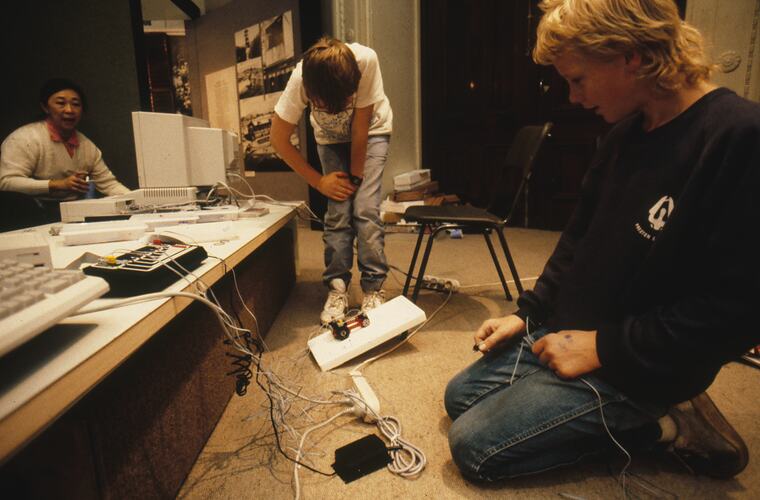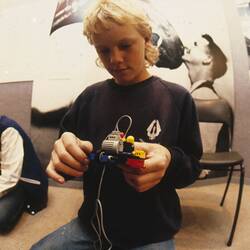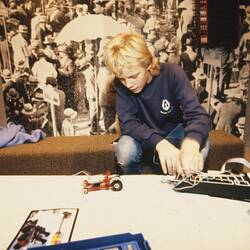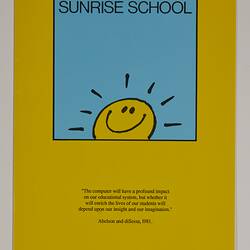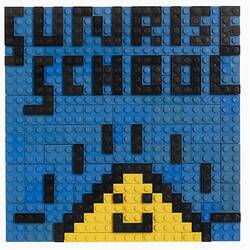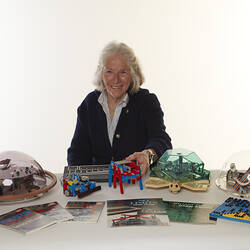Summary
Digital photograph of Virgil Bulow, Christian Slater (year 8 maths students) and teacher Queenie Aikenhead use a LEGO controller to drive a small LEGO vehicle using a Logo program Virgil wrote himself on an Apple IIE at the Sunrise School at Melbourne Museum.
The students are trying to drive a Lego object up a slope. For most students, friction is invisible and is not easily understood. In this case, the students have control of the power of the motor in the object (via the computer) and the slope (in real life) so are working directly with friction. Thus mastering friction is their self-assigned goal and it can be represented in terms of slope and power. "Turtle physics" is a name for the microworld in which the students are operating. The potential for building an intuitive and more accurate explanation for friction challenges the students' existing understanding of the physics involved. Having co-authored the seminal text Turtle Geometry with Harold Abelson, Andrea diSessa continues to work on such a text for physics.
This digital image forms part of the Sunrise Collection which includes educational robots, software and multimedia recordings of teachers and students exploring new possibilities with computer programming.
Photograph was taken by Museum of Victoria photographer Frank Coffa.
Description of Content
Blonde haired boy playing with logo vehicle
More Information
-
Collection Names
-
Collecting Areas
Images & Image Making, Childhood, Information & Communication, Museum History, Social Spaces & Youth
-
Person Depicted
-
Person Depicted
-
Person Depicted
Queenie Aikenhead - Princess Hill Secondary College, 1989
Pictured in the back left by a computer. -
Collaborator
-
Co-ordinator of Event
-
Place & Date Depicted
-
Photographer
-
Individuals Identified
Bulow, Virgil
-
Format
Digital file
-
Classification
-
Category
-
Discipline
-
Type of item
-
Keywords
Computing, Educational Technology, Educational Materials, Museums, Students, Classrooms, Computer Accessories, Computer Programming, microworlds, constructionism
